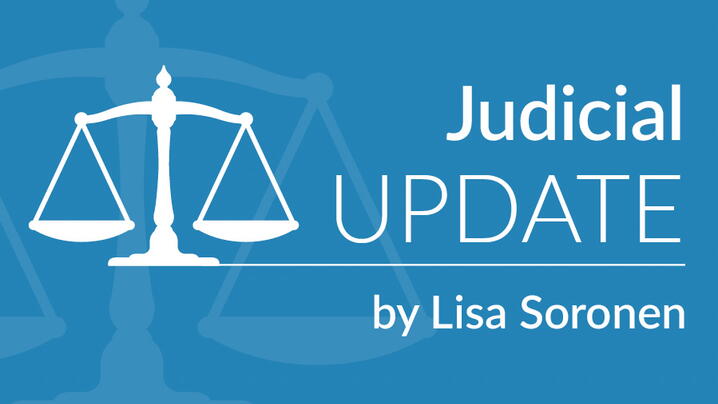
by Lisa Soronen, executive director, State, and Local Legal Center
The State and Local Legal Center (SLLC) filed a Supreme Court amicus brief in Virginia Uranium v. Warren arguing that Virginia’s ban on uranium mining isn’t preempted by the Atomic Energy Act (AEA).
Virginia has the largest known uranium deposit in the United States. Since its discovery in the 1980s, the Virginia legislature has banned uranium mining. Unsurprisingly, the landowner, Virginia Uranium, wants to mine. It sued the state, arguing the ban is preempted by federal law.
The AEA allows states to “regulate activities for purposes other than protection against radiation hazards.” Virginia and Virginia Uranium agree uranium mining isn’t an “activity” per the AEA so states may regulate it for safety reasons. Uranium-ore milling and tailings storage are “activities” under the AEA, so states can’t regulate them for safety reasons. Milling is the process of refining ore, and tailings storage refers to the remaining (radioactive) material that must be stored.
Before the lower court, Virginia argued, and the Fourth Circuit agreed, that its ban on uranium mining isn’t preempted because it doesn’t mention uranium milling or tailings storage. Virginia Uranium pointed out “no one would want to undertake the pointless expense of constructing a mill and tailings-management complex in Virginia and transporting out-of-state uranium [ore] into the Commonwealth.” Virginia Uranium also argued the AEA preempts the mining ban because its purpose and effect is to regulate milling and tailings storage for safety reasons. But the Fourth Circuit refused to “look past the statute’s plain meaning to decipher whether the legislature was motivated to pass the ban by a desire to regulate uranium milling or tailings storage” when Virginia banned uranium mining.
The SLLC amicus brief points out that Virginia Uranium “seek[s] to compel a state to allow uranium mining on nonfederal land based on federal preemption, even though the federal act in question is silent as to uranium mining on nonfederal land, mining is historically subject to state police power, and a statute in the state in question bans uranium mining.” According to the brief, “[s]uch extraordinary relief would not be subject to a limiting principle.” The brief also notes that Virginia Uranium’s argument involves “divining the subjective intent of a state legislature rather than relying on the plain text of the state’s legislation.” The SLLC amicus brief describes how “peering behind statutory text in search of some unexpressed actual motive is a fruitless endeavor.”
John J. Korzen, Wake Forest University School of Law Appellate Advocacy Clinic, wrote the SLLC amicus brief, which was joined by the National Conference of State Legislatures, the National League of Cities, and the International City/County Management Association.
Related Resources
Supreme Court to Decide If Tax Breaks for State and Local Government Retirees Are Unlawful. This 2018 blog post looks at another case where state laws could have national implications for local governments across the country.
The Kavanaugh Confirmation Hearings from the State and Local Government Perspective. Another 2018 blog post that looks at the state and local government issues that were brought up in the Supreme Court confirmation hearings of Judge Kavanaugh.
State and Local Government Authority Under the Double Jeopardy Clause on the Line in SCOTUS Case. In this 2018 blog post, the Supreme Court will hear a case that focuses on the question of double jeopardy in cases where both federal and state prosecutors want to press charges.
New, Reduced Membership Dues
A new, reduced dues rate is available for CAOs/ACAOs, along with additional discounts for those in smaller communities, has been implemented. Learn more and be sure to join or renew today!
